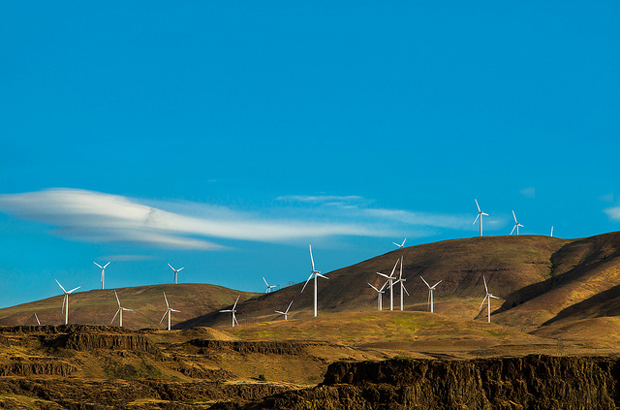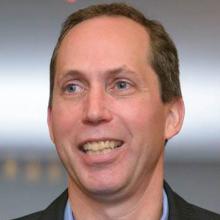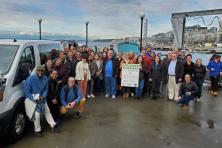Clean Electricity at a Great Price
Great news on Oregon’s transition to clean electricity: Our groundbreaking law to phase out coal and double renewable electricity will be incredibly affordable for ratepayers. In fact, Pacific Power recently announced that the transition will affect rates by less than one-tenth of a percent. Transitioning to clean energy is great for the climate, and as the cost of renewable energy continues to decline, shifting away from increasingly costly fossil fuels will save Oregonians money.
Looking Forward to 2017
But our success with increasing renewable energy is not enough on its own for Oregon to meet its climate goals. Oregon needs policies that will drive greenhouse gas reductions in all phases of our economy, including transportation, homes, and businesses. That’s why we’re working on a suite of strategies, including for next year’s legislative session.
We need further reductions from our transportation sector – the single largest source of emissions in Oregon. Our state needs a modern transportation system that provides safe, affordable, and clean transportation options for everyone. Statewide conversations about a new transportation funding package are already underway, and we are supporting investments in convenient public transportation, safe places to walk and bike, and electrification of cars, trucks, and buses.
We’re also advocating for Oregon to account for the cost of climate pollution and level the playing field for clean energy solutions. The Oregon Department of Environmental Quality is currently studying the efficacy of a market-based system that caps pollution and invests the proceeds in projects that lift up disadvantaged and rural communities. We look forward to legislation in 2017 to create this type of system for Oregon as an integral part of the state's climate strategy.
We will also work with allies to implement strong financial incentives for electric vehicles, energy efficiency, and renewables. 2017 will also see the start of Oregon's new community solar and electric charging programs, both of which were authorized as part of last year's clean electricity, coal transition legislation.
Making Buildings Energy Efficient
Oregon has the chance to drive greater emissions reductions from its building sector. Once a national leader in green building, Oregon is now falling behind other states in setting efficiency standards for residential and commercial buildings. With extensive new construction expected in the coming decades, improving building efficiency standards will yield significant climate benefits and lower utility bills.

At a recent event with Climate Solutions 350 Club members, David Heslam, Executive Director at Earth Advantage, Paul Del Vecchio, Principal at Ethos Development, and Climate Solutions board member Lavinia Gordon discussed the need for updated building standards in Oregon. Our neighboring states are already on track to reduce energy use from new buildings by at least 65%. Oregon has an opportunity to reduce climate pollution and save households and businesses money.
Staff Transitions
After two amazing and successful years at Climate Solutions, Kristen Sheeran has moved on from her role as state director. The last two years have seen Oregon achieve two of the nation's most significant climate victories: The Clean Fuels program and the Clean Electricity and Coal Transition Act. We're incredibly grateful to Kristen for helping us achieve such big wins. Kristen has worked on climate and clean energy for many years, and will be continuing that work at 3Degrees, a clean energy company.
Former board member David Van’t Hof is the Acting State Director for the next several months. David has decades of experience in clean technology, renewable energy, and carbon regulation, having served as Governor Kulongoski's Climate and Renewable Energy Advisor, worked in private law practice with two Portland law firms focusing on renewable energy development, and serving on the board of numerous energy and climate related non profits. Combined with his deep knowledge of Climate Solutions, we’re excited to be bringing David on board in this capacity.





